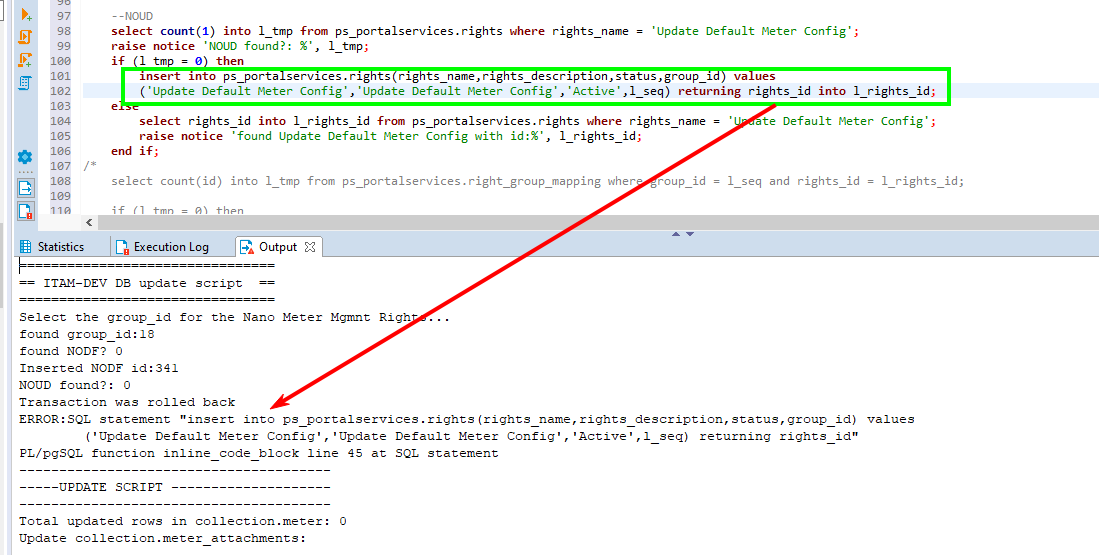

A conditional statement evaluates a Boolean expression and calculates whether it is true or false. Conditionals work the same way in computing. People make conditional decisions every day. They allow programmers to construct more sophisticated, powerful, and useful programs, and are essential to computer science. Conditionals allow different inputs to directly affect the program’s behavior. Without conditionals and other control statements, a program would execute in a deterministic manner, one statement after the next, every time. An Introduction to Conditional StatementsĬonditional statements are programming structures that can make decisions.
POSTGRESQL IF THEN ELSE HOW TO
This guide explains the if statement and other Python conditionals and demonstrates how to use them.
POSTGRESQL IF THEN ELSE CODE
Python’s if statement is used to decide whether or not some code should run. This is usually accomplished through the use of conditional statements, which determine the control flow through a program. Ticket tracker Report bugs with Django or Django documentation in our ticket tracker.Python programs must be able to run different branches of code in different situations. Official Django Forum Join the community on the Django Forum. Django Discord Server Join the Django Discord Community. #django IRC channel Ask a question in the #django IRC channel, or search the IRC logs to see if it’s been asked before.

django-users mailing list Search for information in the archives of the django-users mailing list, or post a question. Index, Module Index, or Table of Contents Handy when looking for specific information. Getting help FAQ Try the FAQ - it's got answers to many common questions.
POSTGRESQL IF THEN ELSE SOFTWARE
Hooshyar Naraghi - Acurapid donated to the Django Software Foundation to

The Client has been with us, we could do so using lookups: If we wanted to change our previous query to get the discount based on how long If a default argument isn’t provided, None is If none of the conditionsĮvaluate to TRUE, then the expression given with the default keywordĪrgument is returned. Other options are provided using keyword arguments. values_list ( "name", "discount" ) Ĭase() accepts any number of When() objects as individual arguments. ) > # Get the discount for each Client based on the account type > Client. today () - timedelta ( days = 10 * 365 ). > from datetime import date, timedelta > from django.db.models import Case, Value, When > Client. Keep in mind that each of these values can be an expression. > from django.db.models.lookups import GreaterThan, LessThan > When (. ) > When ( Exists ( non_unique_account_type ), then = Value ( "non unique" )) > # Condition can be created using lookup expressions. account_type = OuterRef ( "account_type" ). > from django.db.models import Exists, OuterRef > non_unique_account_type = (. ) > # Complex conditions can be created using Q objects > When ( Q ( name_startswith = "John" ) | Q ( name_startswith = "Paul" ), then = "name" ) > # Condition can be created using boolean expressions.

GOLD, then = F ( "name" )) > # You can use field lookups in the condition > from datetime import date > When (. GOLD, then = "name" ) > When ( account_type = Client. from django.db.models import F, Q, When > # String arguments refer to fields the following two examples are equivalent: > When ( account_type = Client.


 0 kommentar(er)
0 kommentar(er)
